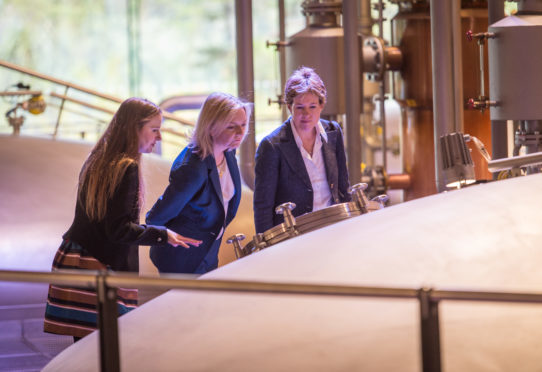The Scotch Whisky Association has warned that unfreezing a tax freeze on spirits could provide a double blow to the sector.
The industry body is lobbying the UK Government to hold off increasing duty to allow firms the flexibility to continue to invest.
Figures compiled by the Scottish Parliament have revealed that production of whisky increases when a tax cut is introduced – leading to more sales generating income for the Treasury.
Now Karen Betts, chief executive of the Scotch Whisky Association, has stressed that “reasonable taxes” over the last five years has contributed to a sales boost leading to a £500million investment across the industry during that time.
However, she fears that a duty rise coupled with the continuing uncertainty surrounding Brexit could undo the benefits that have been reaped.
She said: “Scotch is a very successful industry and a fantastic exporter but we need government support. We know that when tax rises, prices rise and sales decline.
“In the current economic with Brexit approaching it’s very important that the industry remains strong. It also gives companies the flexibility to help invest in the industry.
“We continue we will continue to be strong exporters through Brexit and beyond but we are likely to face some disruption because of it due to raised costs as things change for a period.
“A stable tax environment is going to be really important for us during that period.”
About 90% of whisky produced in Scotland is currently exported – more than two thirds of which is sent to Europe.
Chancellor Philip Hammond is due to announce whether there will be a tax rise on spirits during his autumn statement on October 29.
Mrs Betts said that “constructive” discussions were held with the Chief Secretary to the Treasury, Liz Truss, while she toured Macallan’s distillery last week.
Following the tour, Ms Truss said she would consider the “strong representations” that had been made to her.
The research from the Scottish Parliament revealed the number of distilleries in the country increased from 145 to 220 between 2010 and 2017.
During 2015 a 2% cut to spirits duty led to a £123million increase to the sectors contribution to the Treasury – bringing it to a total of £3.15billion.
A Treasury spokesman explained that explained a freeze on alcohol duties had benefitted distilleries as well as customers, pubs and breweries.
He added: “However, these freezes have come at significant cost to the public purse.
“Successive cuts and freezes to alcohol duty have cost approximately £4billion since 2013-14, which is equivalent to the yearly salaries of about 100,000 teachers.”
